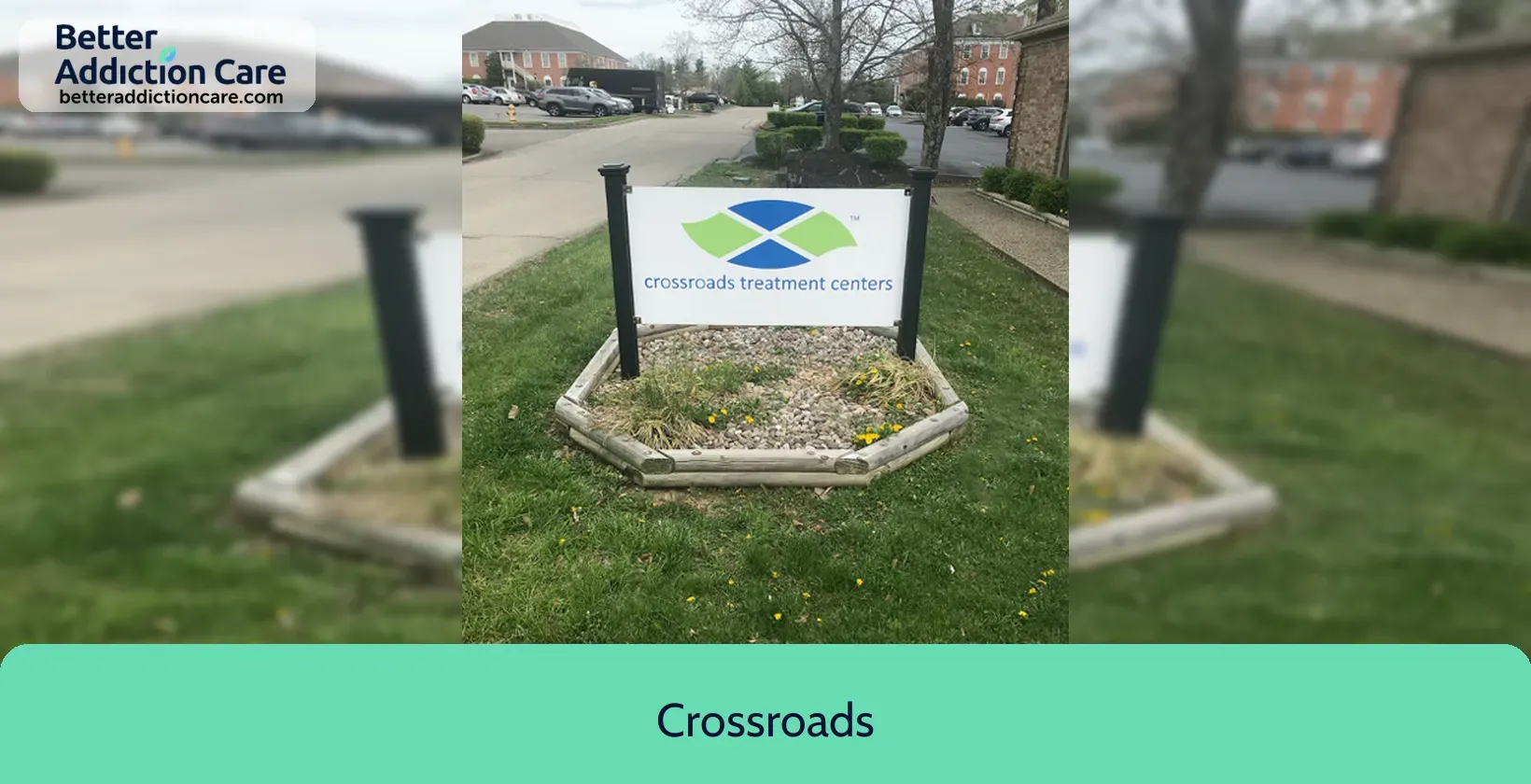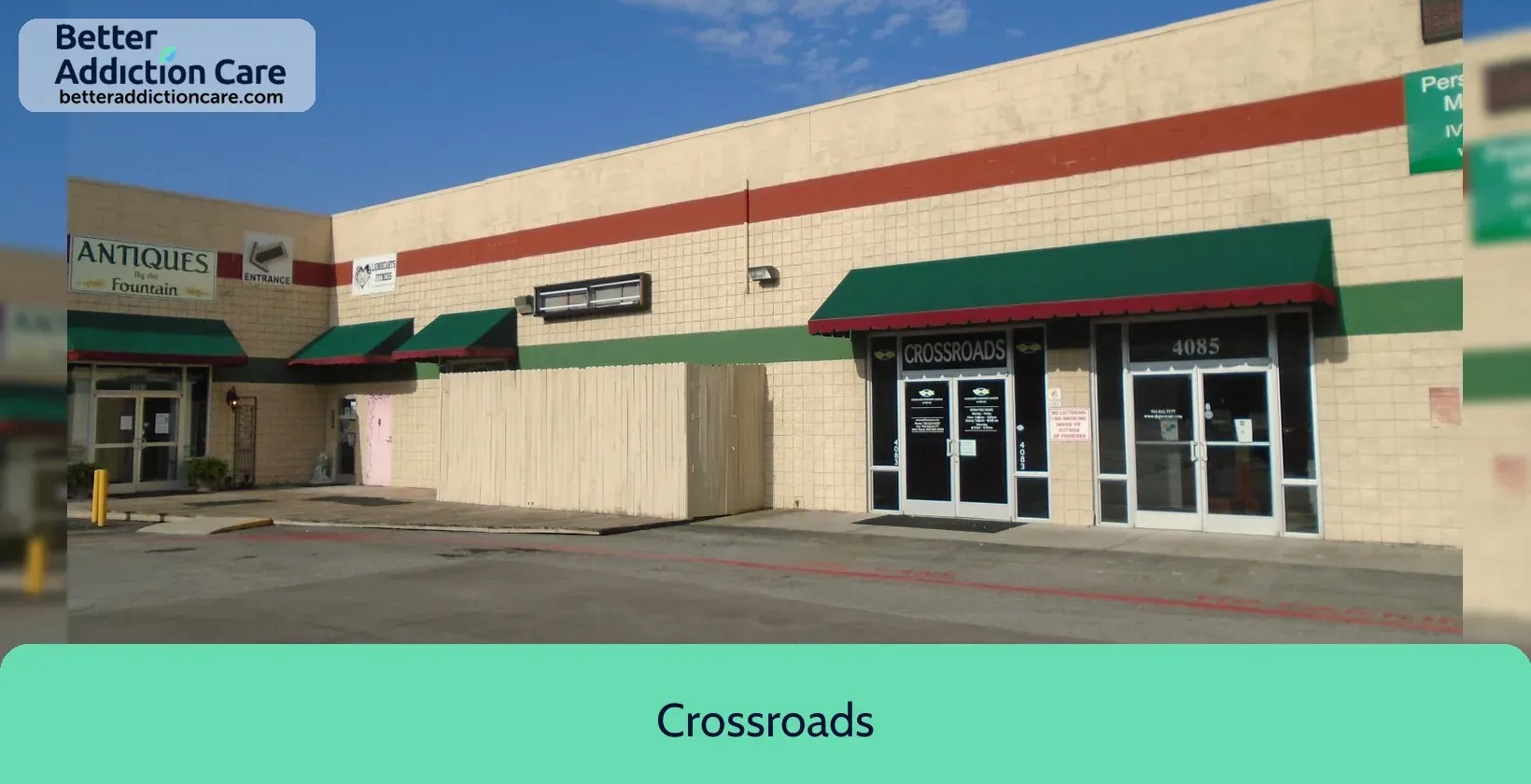Overview
Crossroads provides a comprehensive range of treatment options for individuals who are struggling with substance use disorders at multiple locations across the country. The facility is dedicated to providing high-quality care by offering a variety of evidence-based programs and services that are tailored to the unique requirements of its clients.
Key Programs and Services
Counseling: Crossroads offers personalized counseling services that are designed to assist clients in comprehending and surmounting their addictions. This encompasses family therapy, group therapy, and individual therapy, guaranteeing a comprehensive recovery strategy.
Coordination of Care: The facility provides care coordination services to help clients navigate their recovery journey, ensuring that they receive the appropriate level of care and support throughout treatment.
Peer Support: Peer support programs enable individuals in recovery to establish connections with others who have encountered comparable obstacles. These services offer practical advice, encouragement, and emotional support from individuals who have successfully navigated their own recovery journeys.
Medication-Assisted Treatment (MAT): The outpatient department offers MAT, which involves the administration of medications to alleviate cravings and manage withdrawal symptoms, in addition to counseling and behavioral therapies.
Virtual Appointments: In addition to in-person services, Crossroads provides virtual appointments for clients who prefer or require remote care, ensuring flexibility and accessibility in treatment.
Availability 24/7: The facility is open 24 hours a day, offering round-the-clock assistance to clients, particularly those in need of essential care or crisis intervention.
Crossroads has been accredited by the Commission on Accreditation of Rehabilitation Facilities (CARF), which is a testament to its commitment to the most stringent standards of care in the field of addiction treatment.
Crossroads at a Glance
Payment Options
- Cash or self-payment
- Medicaid
- Medicare
- State-financed health insurance plan other than Medicaid
- Private health insurance
Assessments
- Comprehensive substance use assessment
- Screening for substance use
- Complete medical history/physical exam
Age Groups
- Young adults
- Adults
- Seniors
Ancillary Services
- Case management service
- Opioid use disorder clients only
Accreditations
Drug Enforcement Agency (DEA):
DEA accreditation refers to the process by which a law enforcement agency is recognized by the Drug Enforcement Agency (DEA) as having met specific training, operational, and resource requirements necessary to participate in DEA-led drug enforcement efforts. This accreditation allows the agency to perform DEA-related tasks such as conducting investigations, executing federal search warrants, and participating in joint task forces.
SAMHSA certification for opioid treatment program (OTP):
SAMHSA's Opioid Treatment Programs (OTP) accreditation is a prestigious recognition that signifies a program's compliance with stringent standards and guidelines established by the Substance Abuse and Mental Health Services Administration (SAMHSA). This accreditation demonstrates an OTP's commitment to providing high-quality, evidence-based care for individuals struggling with opioid use disorder (OUD). It serves as a trusted symbol of accountability and excellence, assuring patients, families, and communities that the OTP offers safe, effective, and comprehensive treatment options for OUD.
Commission on Accreditation of Rehabilitation Facilities (CARF):

CARF accreditation is a prestigious recognition for organizations in rehabilitation and human services. It signifies that an organization meets rigorous quality standards and is committed to providing top-notch care. Achieving CARF accreditation involves a thorough evaluation process, including on-site surveys, to ensure excellence in programs and services. This accreditation boosts an organization's credibility, assures clients and funders of quality, and promotes ongoing improvement in the field of rehabilitation and human services.
Registration: 238381
State department of health:

Government agencies issue State Licenses, which grant rehabilitation organizations permission to conduct their operations lawfully within specific geographic regions. Licenses needed to operate are typically determined by the type of rehabilitation program offered by the facility and its physical location.
Registration: GA-10131-M (Georgia)
Treatment At Crossroads
Treatment Conditions
- Alcoholism
- Substance use treatment
- Opioid Treatement
Care Levels
- Outpatient
- Outpatient methadone/buprenorphine or naltrexone treatment
- Regular outpatient treatment
- Aftercare
Treatment Modalities
- Telemedicine/telehealth therapy
- Substance use disorder counseling
- Group counseling
- Relapse prevention
- Individual psychotherapy
Ancillary Services
Additional Services
- Pharmacotherapies administered during treatment
- Discharge Planning
- Breathalyzer or blood alcohol testing
Special Programs
- Pregnant/postpartum women
Contact Information
Read our Most Recent Article About Drug Addiction
DISCLAIMER: The facility name, logo and brand are the property and registered trademarks of Crossroads, and are being used for identification and informational purposes only. Use of these names, logos and brands shall not imply endorsement. BetterAddictionCare.com is not affiliated with or sponsored by Crossroads.
Your Addiction Doesn't Have To Define Who You Are.
You deserve high-quality treatment and a fulfilling life in recovery.
By calling us, you agree to our Terms & Conditions










